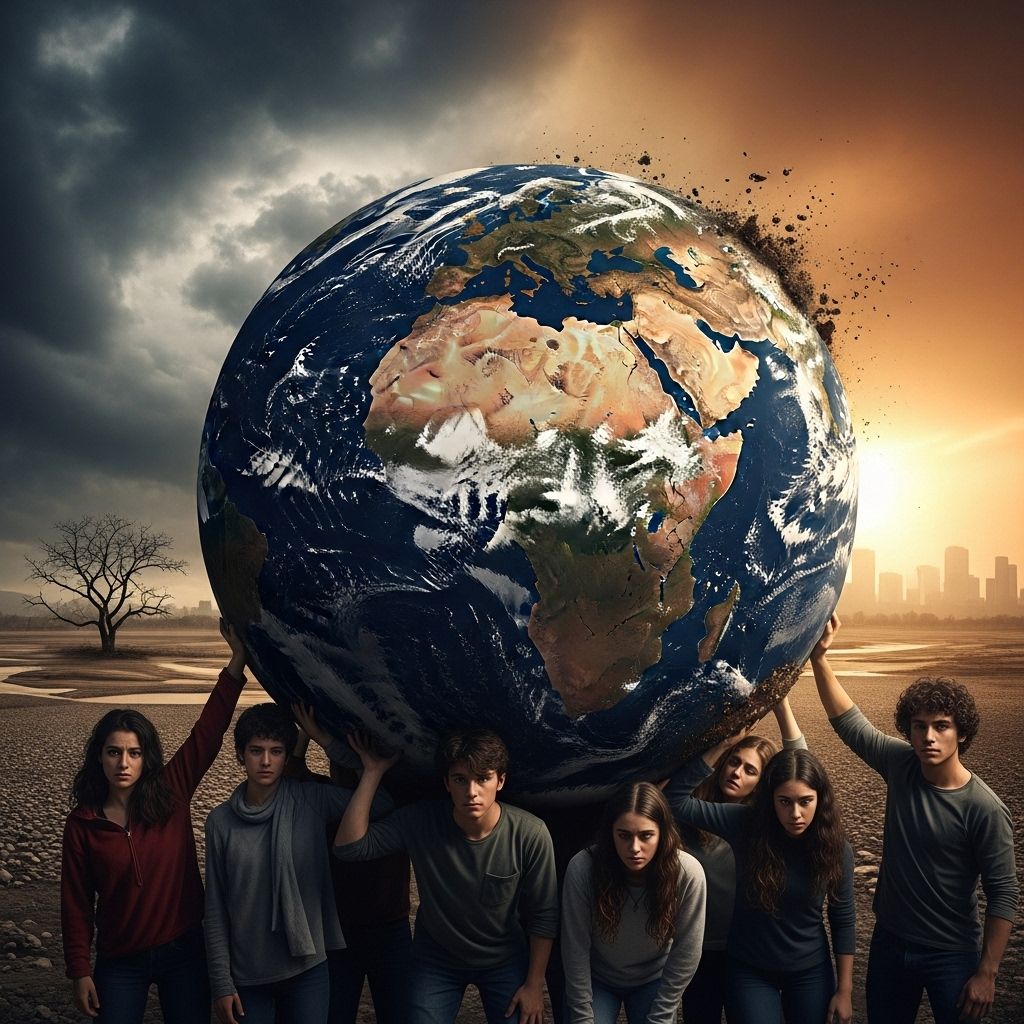Why Younger Generations Bear the Brunt of the Climate Crisis
Young people face greater risks and mental health challenges as climate change accelerates, yet their activism and hope drive global transformation.

Climate change is a global emergency that impacts all generations, but younger generations find themselves disproportionately affected. As the pace of environmental transformation accelerates—through extreme weather events, rising sea levels, and ecocide—teens and children will experience the long-term consequences more deeply, physically, economically, and mentally. This article explores how this injustice unfolds, delving into its causes and the ways youth are responding with action and hope.
Environmental Realities: Living Through Climate Change
The frequency and severity of extreme climate events continues to rise, bringing longer heatwaves, devastating floods, and wildfires. Current forecasts project global temperatures could rise by 2°C or more if bold action is not taken. Younger generations born in the 21st century will encounter:
- More days with dangerous heat indexes
- Increased exposure to vector-borne diseases
- Heightened risk from natural disasters like hurricanes and droughts
- Disruption of food supplies due to crop failures and ocean acidification
- Greater likelihood of forced migration due to inhospitable conditions
Many young people today already witness their communities and lives impacted by these events, with worries about the future becoming a constant presence.
Economic and Social Burdens: The Long-Term Cost
Beyond direct environmental harm, the economic and infrastructural costs of climate change will fall heavily on youth and future generations:
- Costs for climate adaptation—such as building sea walls, updating infrastructure, and disaster recovery—will rise dramatically.
- Youth will inherit financial burdens associated with climate mitigation and adaptation efforts, often through increased taxes or reduced services.
- Economic instability will be pervasive in regions hardest hit by climate events, limiting career and life opportunities.
- Resource scarcity, from water stress to energy challenges, will reshape societies, requiring innovation and resilience from the young.
According to experts, this transfer of responsibility is known as intergenerational inequity, with the actions or inactions of today’s adults significantly impacting tomorrow’s world.
Mental Health Impacts: Anxiety and Hope
Climate change is now recognized as a driver of mental health issues among young people. Surveys show:
- 37% of teens feel anxious about climate change and its consequences.
- Over a third feel afraid, while many report feelings of hel
References
- https://www.weforum.org/stories/2023/07/empowering-tomorrows-climate-leaders-how-youth-influence-climate-action/
- https://www.edweek.org/leadership/teens-are-struggling-with-climate-anxiety-schools-havent-caught-up-yet/2022/12
- https://www.rescue.org/article/12-climate-activists-inspiring-us-fight-climate-change
- https://trellis.net/article/evolution-tree-hugger/
- https://www.tandfonline.com/doi/full/10.1080/00797308.2023.2287381
- https://www.jstor.org/stable/41209926
Read full bio of medha deb












